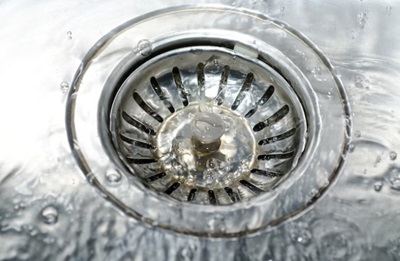When clogs occur, they can be anything from a mere inconvenience to horrible odors, water damage, and even colossal problems with a whole host of treacherous issues. Here are some practical tips on how to unclog and what to do to prevent clogs in the first place.
Effective Methods for Unclogging Drains
Whenever a clogged drain occurs, it is in the homeowner’s best interest to take immediate action to prevent the problem from getting out of control. The following are the steps involved in doing so effectively:
1. Boiling Water
Pouring boiling water down the drain will flush out and remove most of the grease, soap, and other debris that accumulates in drains. It’s a pretty simple but practical line of defense against clogs.
2. Baking Soda and Vinegar
This is due to the fizzing reaction that breaks down organic matter. Pour half a cup of baking soda and half a cup of vinegar down the drain. Leave to soak for about 15 minutes, then flush with hot water.
3. Plunger
This is a must for every household. It should create enough suction to hopefully loosen whatever the clog is. Make sure there is enough water in your sink or tub to cover the plunger’s cup and force it down completely.
4. Drain Snake
An overwhelming clog is best confronted with a drain snake or auger. Insert the snake into the drain and twist it as you push it in until it feels resistant. This will allow the tool to reach and break up clogs deep in the pipes.
5. Chemical Drain Cleaners
One is that while chemical drain cleaners do their job quite successfully, they should not be used too often as they can quickly damage such pipes. Always read the instructions on the container and use with caution.
Preventive Measures to Avoid Future Clogs
An ounce of prevention is worth a pound of cure. It’s much easier – and cheaper – to prevent clogs than to deal with them. Here are some preventive measures to keep your drains clear:
- Use drain screens: Install drain screens to catch hair, food particles and the like before they enter your pipes.
- Proper Disposal – Do not pour grease, coffee grounds, and food scraps down the sink. Use either the garbage or compost.
- Regular Maintenance: The buildup of material in the drain over time; running hot water down your drains regularly or a mixture of baking soda and vinegar monthly can help prevent buildup.
- Educate Your Household: Make sure everyone knows what can and cannot go down the drain.
Advanced Prevention Techniques
Advanced prevention techniques if you want to go the extra mile-more ways than ever to protect your plumbing system:
1. Regular Inspections
This will all be part of the regular plumbing inspection schedule with plumbers in my area. They can identify and deal with potential problems before they become big problems.
2. Water Softener Installation
Mineral deposits in the water can build up in your pipes. A water softener will minimize the chance of this happening and extend the life of your plumbing system.
3. Upgraded Plumbing Fixtures
Consider replacing old fixtures with new efficient models. Old fixtures should be replaced with new, efficient ones. This will help your water flow better and reduce clogs.
4. Professional Maintenance Plans
Sign up for a maintenance plan. Excellent San Jose plumbing repairs like Fuse Service will give routine inspections, drain cleaning, and emergency plumbing services in most plans.
DIY vs. Professional Help
While DIY options can fix minor clogs and these would prove invaluable, there are other situations where the professional will be required. Below are some of those instances where it is better to seek the help of professionals:
- Persistent Clogs: According to service providers, if a clog keeps coming back despite your efforts, it is a good sign of a deeper-rooted problem.
- Multiple Clogs: This occurs when you experience clogs in multiple drains at the same time, which usually indicates that the main sewer line has a problem.
- Strange Odors: The presence of unusual odors that persist even after drains are cleaned may indicate more serious problems, such as a sewer backup.
- Slow Drains: Consistently acting this way could signal a more serious clog or problem with the plumbing system.
In these circumstances, a “plumbers in my area” search will come to the rescue and find you experts who know exactly what needs to be done.
Conclusion
Working with these drain concepts will undoubtedly make living at home a breeze. Proper unclogging methods and effective preventative measures put in place by a professional will ensure that there will be no inconveniences that can sometimes lead to a mess when there is a clog. Some simple DIY fixes or something you want to leave to the experts at Fuse Services will ensure that this plumbing system is well cared for for years of good service.
Now, every homeowner needs to know how to unclog their drains now and in the future. Remember, with these tips, you may just save your plumbing from becoming a potential nightmare in terms of unexpected repair costs. Regular maintenance and improvements are imperative for one to avoid costly plumbing repair jobs and enjoy a lifetime of plumbing needs. Oh, and one cannot forget those general plumbing maintenance strategies that should include hot water heater repair.
(eTN): Fuse Service Tips for Unclogging Drains and Preventing Future Clogs | re-post license | post content























